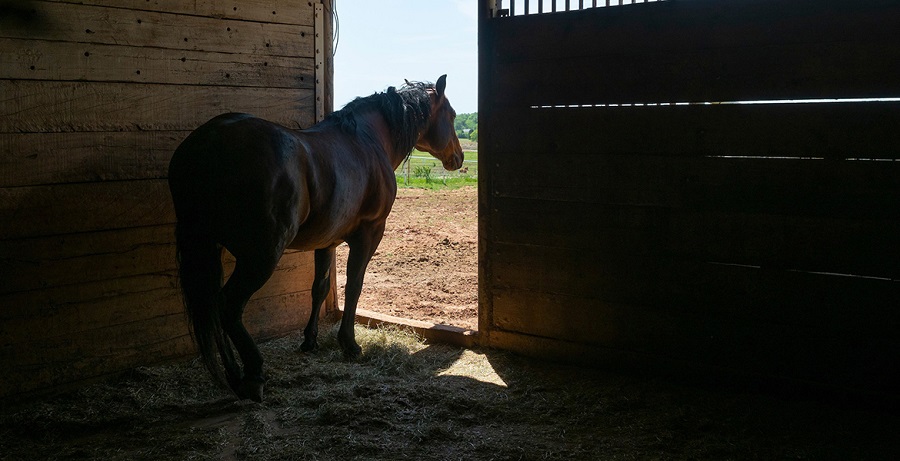
Horse owners should review basic biosecurity practices to guard against the potential spread of vesicular stomatitis to their animals, Oklahoma State University experts said.
Vesicular stomatitis is a contagious, viral disease that – while rarely life threatening – can have a significant financial impact on an individual horse owner and the state’s equine industry, said Dr. Barry Whitworth, OSU Extension veterinarian.
The first case in the United States in 2020 was diagnosed in early April in New Mexico, much earlier than normal as the viral disease typically occurs during the summer and into fall, and some years not at all.
“Vesicular stomatitis is a reportable disease; state and federal animal health authorities will be contacted by a horse owner’s local veterinarian and the state veterinarian will quarantine an affected farm or ranch if a case is confirmed through testing,” Whitworth said.
Oklahoma law requires that horses and other susceptible animal species must be confined to a quarantined location for at least 14 days from the onset of the last case on the property. Equestrian event organizers also may choose to cancel horse shows, rodeos and similar events in the surrounding area. Interstate movement of horses also may be restricted.
Symptoms include blister-like lesions on the tongue, mouth lining, nose or lips of an affected horse. Excessive salivation, difficulty in eating and swelling of the coronary band also may be seen. In some cases, the lesions develop on a horse’s udder or sheath. Whitworth said a horse manager should contact his or her veterinarian immediately if such symptoms are observed.
The disease can be passed from horse to horse by contact with saliva or fluid from ruptured blisters.
“Insect control programs should be implemented as insects are the primary manner in which the virus is spread,” said Kris Hiney, OSU Extension equine specialist. “Physical contact between animals, or contact with buckets, equipment, housing, trailers, feed, bedding, shared water troughs or other items used by an infected horse also can provide a ready means of spread.”
OSU recommendations include the following to help prevent the occurrence of vesicular stomatitis:
- Healthy horses are more disease resistant, so provide good nutrition, regular exercise, deworming and routine vaccinations.
- Isolate new horses for at least 21 days before introducing them into a herd or stable.
- Implement an effective insect-control program as certain types of flies and midges can transmit the disease. Remove manure promptly and eliminate potential breeding grounds for insects such as standing water and muddy areas.
- Use individual rather than communal feeders, waterers and equipment.
- Clean and disinfect feed bunks, waterers, horse trailers and other equipment regularly.
- Be sure farriers and other equine professionals who come into direct contact with the horse exercise due caution so as not to spread the disease from one horse or facility to the next.
For facilities where vesicular stomatitis has been confirmed, horses with lesions should be isolated from others. Healthy animals should always be handled first and ill animals handled last. Handlers should then shower, change clothing and disinfect equipment to prevent exposing others. Anyone handling infected horses should implement proper biosafety methods including wearing latex gloves and washing hands after handling animals with lesions.
“If you’re sponsoring an equine event during an outbreak, require a recent health certificate on every horse entering the location and consider having a veterinarian visually inspect all horses at check-in,” Hiney said. “Work with the veterinarian to establish isolation and response procedures that can be implemented quickly if a suspected case is identified at the site.”
Vesicular stomatitis can be transmitted from infected horses to humans. The disease in humans tends to cause severe flu-like symptoms such as headache, fever, muscle aches and extreme fatigue. Whitworth and Hiney said anyone who experiences flu-like symptoms after working with an infected horse should contact a physician immediately.
For more information about vesicular stomatitis, the U.S. Department of Agriculture and Equine Disease Communication Center have resources online. A video segment featuring Whitworth sharing insights about the equine disease is available online through OState TV.
OSU Extension is one of two state agencies administered by the university’s Division of Agricultural Sciences and Natural Resources and is a key part of OSU’s state and federally mandated teaching, research and Extension land-grant mission.
